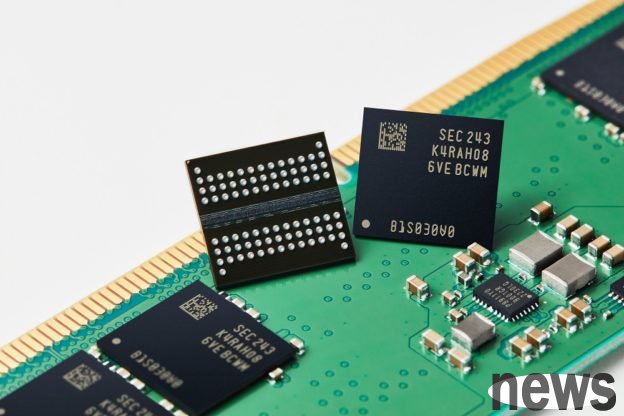A major technology leak occurred in South Korea's technology industry recently. Several former Samsung Electronics executives and researchers were accused of illegally stealing and transferring the country's core technology to a Chinese semi...

A major technology leak occurred in South Korea's technology industry recently. Several former Samsung Electronics executives and researchers were accused of illegally stealing and transferring the country's core technology to a Chinese semiconductor company. They successfully assisted the company in developing China's first 18-nanometer DRAM memory, seriously endangering South Korea's national economic security.
According to reports from Business Korea, the Information Technology Crime Investigation Department of the Seoul Central District Prosecutor’s Office in South Korea formally prosecuted and detained three key individuals involved in the case on October 1. The three people include a former Samsung Electronics executive and two former Samsung Electronics researchers. They were accused of violating the Industrial Technology Protection Act and the Unfair Competition Prevention Act.
According to prosecutors’ investigation, after leaving Samsung Electronics, the three people involved switched to Changxin Memory (CXMT), a Chinese DRAM semiconductor company that had received an investment of up to 2.6 trillion won (approximately NT$61.6 billion) from the Chinese government. Later, the persons involved became core members of the second phase development team of Changxin Storage. They are accused of illegally using the core national technology of the 18nm DRAM process leaked from Samsung Electronics and using it to complete the development work. This leaked technology belongs to Samsung Electronics’ latest 10-nanometer DRAM process technology. The company originally invested 1.6 trillion won (approximately NT$37.9 billion) in development and is the world’s first technology.
In fact, this is not the first time that South Korean prosecutors have investigated this technology leak case. Previously, South Korean prosecutors had detected signs of leakage of Samsung Electronics' core national technology, and through direct investigation, they later prosecuted and detained two former Samsung employees who had participated in the first phase of the Changxin Memory development team. Later investigations revealed that the person involved had carried out a series of technical leaks. First, the secrets of the obtained materials were transferred to Changxin Storage. Later, the persons involved gradually became the leader of the second-stage development team of Changxin Storage, responsible for supervising the entire development work, supervising the process development, and managing related operational affairs.
In the end, the three persons involved in the case successfully completed the development work through obtaining confidential materials and conducting relevant reverse engineering after actually obtaining the Samsung electronic products. As a result, Changxin Memory successfully mass-produced 18nm DRAM and became the first company in China and the fourth company in the world to master this technology.
South Korean prosecutors stated that the persons involved in this case accepted huge benefits in return for participating in the product. Among them, the three people involved in the case received high salaries of 1.5 billion to 3 billion won (approximately NT$35.5 million to 71 million NT dollars) during the 4 to 6 years they worked at Changxin Storage, and this remuneration was 3 to 5 times their salary at Samsung Electronics.
South Korean prosecutors emphasized that the losses caused by this technology leakage to Samsung Electronics and the South Korean national economy were shocking. Based on 2024 data estimates, Samsung Electronics' revenue will decrease by at least 5 trillion won (approximately NT$118.4 billion). What is even more worrying is that the revenue reduction is expected to continue to expand in the future and may reach at least tens of trillion won. Therefore, South Korean prosecutors emphasized that they will continue to take severe response measures in the future against technology leak crimes that threaten victim companies and the national economy.